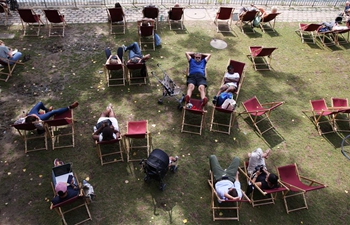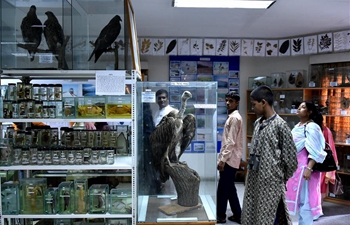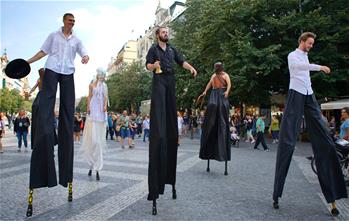THE HAGUE, July 19 (Xinhua) -- The Dutch state is only 10 percent liable for the deaths of almost 350 Bosnian Muslim men who were executed at Srebrenica in July 1995, the Dutch Supreme Court ruled here on Friday.
The Supreme Court reduced the liability of the Dutch troops from 30 percent, ruled by the appeals court in The Hague in 2017, to 10 percent. In 2014, the District Court of The Hague found that the Dutch state was fully responsible for the deportation of the 350 Muslim men after the fall of Srebrenica and for the damage suffered by relatives.
The Supreme Court estimated that the Muslim men had a 10 percent chance of escaping from the Bosnian Serbs had they been offered the choice by the Dutch forces to remain in their compound. "The state's liability is thus limited to 10 percent of the damages suffered by the surviving relatives of approximately 350 victims. These surviving relatives may claim compensation from the state," the court said.
As part of a United Nations (UN) peacekeeping force during the Bosnian war, the Dutch battalion Dutchbat had the task of protecting the UN-designated "safe area" in Srebrenica from March 1994. However, on July 11, 1995, they were not able to prevent the Bosnian Serb forces led by General Ratko Mladic from entering the enclave.
After Serb forces overran the zone, an estimated 8,000 Muslim men and boys were taken away, with Dutchbat assisting in the evacuation of the refugees, and were eventually killed by the Bosnian Serb army.
The relatives believe that Dutchbat did too little to protect the population against the Bosnian Serb army. Like the appeals court, the Supreme Court also rejected the Dutch state's liability for Dutchbat's acts until the start of the evacuation on July 12, 1995. "The fate of the refugees would not have been changed had Dutchbat stopped cooperating, because the Bosnian Serbs would have continued the evacuation in some other way," the Supreme Court stated.
However, the Supreme Court ruled that the Dutch state did act wrongfully in relation to the evacuation of the 350 men still at the compound among 5,000 other refugees in the late afternoon of July 13, 1995. "The chance that the male refugees would have escaped the Bosnian Serbs had they been given the choice to stay was slim, but not negligible," it stated.
With the ruling, a long-lasting case comes to an end in the Netherlands. The case was originally filed in 2007 by relatives, including the organization "Mothers of Srebrenica and Zepa Enclaves," representing the relatives of the victims. If they still want to continue this case outside the Netherlands, the relatives can now turn to the European Court of Human Rights in Strasbourg, France.













